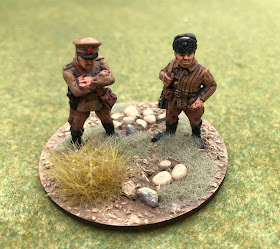The strength of this account is the political context, both in the occupied territories and the internal wrangles in SOE. He is particularly critical of the support given to Mihajlovic's chetniks, long after it was clear that the only effective resistance in Yugoslavia was Tito's partisans. As he puts it, in 1942 the plan was to;
"refuse all aid, or give as little as might be consistent with the overall aim of helping resistance, to any movements that were not in favour of kings and governments in exile. Another aspect of this first answer was to boost the importance, or if necessary invent the importance, of any movements that were in favour."
In essence, right wing resistance accepted orders from the British, whereas left wing groups were less likely to. The problem was that the politics of armed resistance becomes the politics of radical democracy and the communists were doing the serious fighting in comparison to the inaction, or active collaboration, of conservative groups.
This radicalism was also present in the British army. In November 1943, the education department established a mock parliament in Cairo. It quickly elected a large majority of Labour 'MPs' and passed 'bills' restricting inheritance and the nationalisation of the banks. It was quickly shut down!
The author describes the operations he was involved in. Interestingly, this included areas that we don't normally associate with SOE operations. These include Liguria in northern Italy and the Vojvodina region of Yugoslavia. This was particularly challenging for the partisans as it is mostly plains.
The author's description of these operations is somewhat confusing. Some introduction, aims and objectives would have been helpful. Several chapters leap into an operational area, and the reader is left trying to pick up the thread of the story.
Overall, this is an interesting and different approach to the subject. A bit more structure would have made it a better read.
 |
| Partisan commander |
 |
| Partisans around the campfire |

No comments:
Post a Comment